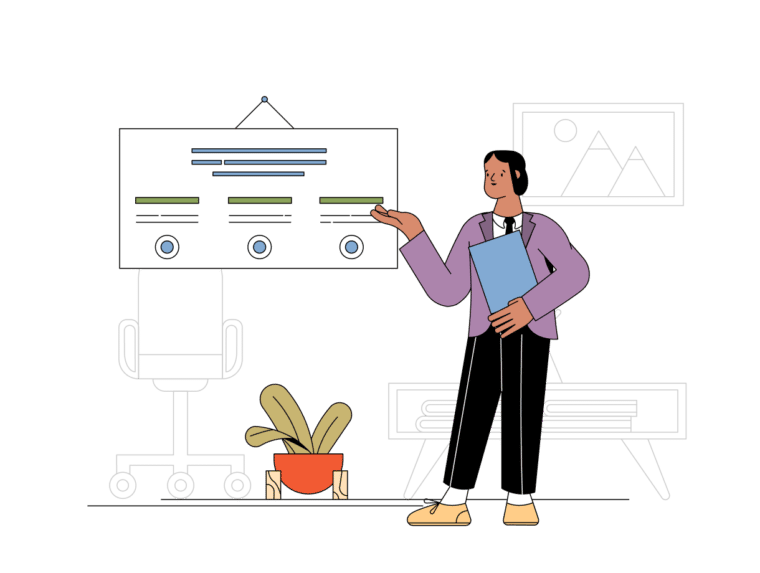Whether you are forming a new company or adding to your existing number, hiring the right employee can ensure the success of your organization. To do this, most companies are favoring pre-employment tests over traditional interviews.
Pre-employment tests are an effective way to enable employers to source the most suitable candidates for the position in your organization. It can help you determine if a candidate possesses the necessary skills and abilities to increase productivity in the department.
These Pre-employment tests are designed to provide reliable information that will shed light on the capacity and ability of the applicants to execute tasks in exceptionally.
Here are the most common pre-employment tests that are administered by employers.
Aptitude Tests
The aptitude test psychology definition is an examination that seeks to measure and determine an applicant’s ability to learn things including new knowledge and skills. It measures a narrower and more focused range of abilities and intelligence necessary for the job at hand.
On the other hand, an aptitude test is related to a cognitive test and intelligence test in the sense that it also tackles varied domains of intellectual skills and capabilities. It also measures the person’s ability to perform basic to complex abilities. The different types of aptitude tests include:
Numerical Aptitude
These are numerically related questions that an employer may use to assess the applicant’s ability to digest mathematical problems. It may range from a basic arithmetic operation to critical and high-level mathematical questions to assesses an individual’s capacity for number-based activities.
An aptitude test like this includes topics on numerical logic, reasoning, and word problem. It is an empirical exam for cashiers, accounting clerks, and engineering-related work.
Verbal Aptitude
It measures an individual’s full grasp of the English language which is the most commonly used medium in workplaces.
It involves questions and skills in vocabulary, grammar, comprehension, analysis, deductive reasoning, spelling, word analogy and relationship, and critical thinking. These are mostly applicable for administrative, clerical, and research-related jobs.
Non-verbal Aptitude
An aptitude test in this category includes spatial recognition, non-verbal analogy, diagrammatic reasoning, inductive and abstract reasoning.
It measures the abilities of applicants to look beyond figures and numbers and their capacity to incorporate imagination and creativity with work. This is usually applicable for managerial and supervisory tasks.
Mechanical Aptitude
An aptitude test like this contains questionnaires dealing with mechanical knowledge and comprehension. It also includes electronics knowledge and mechanical tools and equipment.
Such examinations are used in fields of aircraft engineering, auto mechanics, machine operation, military, firefighting, and the like.
Most aptitude exams are conducted in a time-framed manner and usually with tricky questions which serve as distractors or confusers. Thus, the Aptitude test also captures the ability to think consistently with the applicable theory and be keen on details.
Cognitive Ability Tests

These tests are focused on assessing a candidate’s mental capacity to work in a particular role. It predicts how they will perform in a job and is more accurate than a traditional interview or even one’s experience.
Employers can know how a potential employee can handle different situations based on the results of the test. An example of this test is the General Aptitude Test, which asks questions about your ability to use logical, numeric, and verbal reasoning.
Personality Tests
This is a pre-employment test that deals with daily and practical problem solving, innate reasoning skills, evaluating arguments, careful analysis of scenarios, and getting logical solutions to certain situations.
It tries to capture the intuitive response of a person in certain conditions, especially work pressures and challenges. Personality test can be categorized into two types.
Self-Report Inventories
This kind of personality test requires an examinee to read questions and rate how much this applies to their daily and their personality.
Projective Examinations
In this kind of personality test, examination potential employees are given certain scenarios and asked to share or give input about their interpretation of the case. How they would deal and solve with it.
There are no right or wrong answers to the personality test. Instead, the score is being contrasted with the ideal personality response accurate to the situation.
Pitfalls of Personality Tests
Personality tests are indeed capable of reflecting an individual’s response to a certain situation. However, it has its pitfalls such as:
- Examinations Maybe Too Long
This type of exam is deliberately long and maybe repetitive. This is designed in such a way to establish reliability and validity to the answers of the student.
There are also tendencies for test users to generate answers without much comprehension of the questions thus hindering the opportunity to get to know them and their reactions.
- The Test May Not Reflect an Examinee’s Actual Response to Scenarios
Since this is a written exam, some student may not state their actual and primary reaction to certain situations. Some of them may evaluate the questions first and thought of the best answer rather than their basic response.
- Results May Not Imply Consistency
There are tendencies for test users to just guess and change responses even with test items that give out the same scenarios.
To effectively administer a personality test you could remind test users of the following items to accurately extract their tendencies and responses.
- Employ honesty in answering the exam.
- Read the instructions carefully for every test item.
- Understand the question well, and choose the answer that reflects their primary response to a certain situation.
- Questions may seem to be countless but diligence in reading through and answering them pays off. It is a helpful tool to understand themselves more. To try to introspect and be acquainted with both their strength and weaknesses.
Achievement Test
This is a pre-employment test that almost goes proportionally with the aptitude test. It digs down on question that deals mainly with the existing knowledge, experiences, skills, understanding, and accomplishment that a probable employee has gained. This is also called a performance test or job knowledge examination.
It evaluates how an individual learns from his studies and training from his former work. It shows his knowledge and mastery over the job. This test will also reflect how deeply he understood the job description that he would like to take. His understanding of the initial processes involved achieving a certain goal or result.
Integrity Tests
Does the candidate possess the same values in and out of work? What would their reaction be when asked to do something that is against the company’s policy? These are some of the questions that employers can ask in integrity tests.
Generally, these tests help employers measure applicants’ reliability to determine their degree of integrity. With this information, you can then decide whether the candidate is a good match for your organization.
Culture Fit Assessment
This one may become a subjective exam but is still an important aspect to consider in conducting pre-employment tests. As a company owner, it is always advantageous to have employees who value the same belief and aspirations as you do. Who would also hold on to the same work ethics that you would like your business to be known for?
Such exams can be customized for you by some platforms. Nevertheless, being in charge of your company, you can generate questions by yourself that probable employees can answer in written form or interview. From there you can carry who will be the best person to fit the traditions of the company.
Skills Assessment Tests

A skill test may be conducted in a written manner or a physical test. This kind of test is usually conducted at the later part of the screening process and it is used to measure a candidate’s soft, hard, or digital skills. Only those who were able to pass the general tests and have proven their capability and readiness to work are allowed to take skill tests.
A skill test is likened to doing the actual task at hand. An applicant may be given a questionnaire or a scenario where he needs to demonstrate how he will handle the situation. He may be asked to show his skills on the particular subject matter related to the job hiring.
Some examples of skill assessment tests include:
Programming Skills
Is your company be dealing with or is planning to leverage the digital and online world? An applicant for the job should take a demonstration test to show off his unprecedented knowledge and skill in programming. Some of the basic and widely used coding languages he may present to you are HTML and PHP deal with the technicalities of the job description.
Software Skill
Interconnecting networks, gadgets, and systems may just be some of the skills you are utilizing in your company. Such skills would require a demonstration from your probable employee to check if they are suitable for the job.
Machine and Equipment Skills
The actual operation and handling of tools and machinery for business are essential. Having an initial idea if not at all complete should be an edge every capable applicant must possess as he goes into an employment screening process.
Teaching and Lecture Skills
In employment that seeks the services of teachers, lecturers, and other related fields, a teaching demonstration is always scheduled in the latter part of the screening process. Such jobs do not merely need theoretical knowledge of the subject but the ability to effectively transfer knowledge to students.
Arts and Media Skills
The arts and the media are also employment assessment skills that need actual showing off of talents and skills. An artist must prove that they have the relevant skills before being hired for the role.
Emotional Intelligence Tests
Employers give emotional intelligence tests to evaluate a candidate’s knowledge of emotions and their relationship-building skills. Employees need to have high emotional intelligence as this means that they can understand their own emotions and that of other employees.
Consequently, they can quickly solve conflicts and help other employees deal with anxiety. This test is especially important if the position in your organization involves leadership and interpersonal relationships.
Examples of emotional intelligence skills that can be tested include:
Empathy
Are you compassionate and willing to understand the feelings of others? This is a trait that is tested in the emotional intelligence tests.
Teamwork

Teamwork shows that you can work better with other people regardless of their personalities or background. This leads to accomplishing goals quickly and more efficiently.
Physical Ability Tests
These are pre-employment tests done by organizations looking for candidates with a certain level of physical fitness. These tests can evaluate the strength and stamina of candidates to ensure that they have what it takes for the job.
Besides, making your employees take this test can play a major role in lowering employee injuries. Consequently, this reduces worker’s compensation claims.
Why You Should Invest in Pre-Employment Screening Tests?
Getting the right person to the job brings you an advantage in countless ways. Some of the benefits include:
Decrease in Staff Turnover
Pre-employment tests help you attract the right candidates for the job and this lower the turnover rate. In the long run, this can save you on costs for training and recruitment.
Reduce Hiring Time Significantly
The hiring process can strain your hiring team and this can hinder effectiveness. By employing pre-employment tests, your organization will find the right candidate for the position seamlessly and quickly.
Boosts Productivity
Pre-employment tests allow you to choose the most capable candidate for the position. Consequently, this can increase productivity and lead to the overall success of your organization.
Lessen Training Time
After hiring employees using assessment tests, you won’t need to spend much time and money on their training. This is because you can identify candidates that already have the right skills for the job.
Conclusion
It is always best to give ample time and attention to incoming employees right from the screening process before they become a part of your company. The various pre-employment tests are instrumental to ensure that you get the right candidates that will give your organization a competitive edge.
